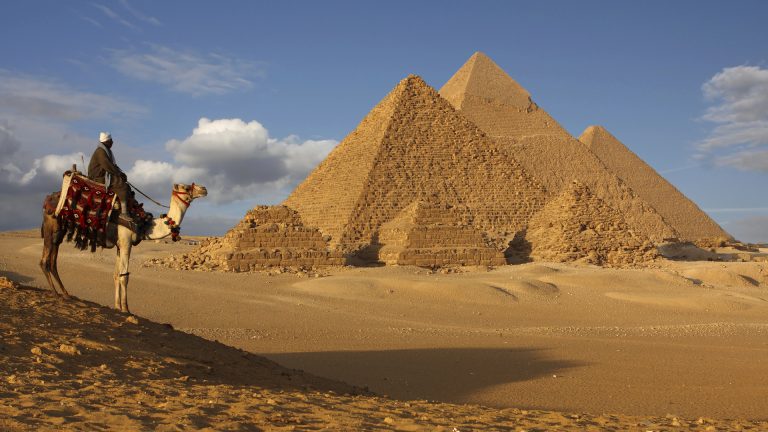Ancient Egypt, a cradle of civilization, stands as one of the most enigmatic cultures of antiquity. Flourishing along the fertile banks of the Nile River, this ancient civilization left indelible legacy behind continuing to captivate our imagination to this day.

Source: www.pbs.org
At the heart of ancient Egyptian society was the Nile River, an elemental force that not only sustained life but also shaped the nation’s identity. The predictable and life-giving floods brought fertile soil, enabling abundant harvests, which laid the foundation for a prosperous agrarian society. The Nile also facilitated trade and communication, connecting distant regions of the kingdom, and promoting cultural exchange.
Religion played an integral role in the daily lives of the ancient Egyptians. They worshipped a pantheon of gods and goddesses, attributing divine significance to natural phenomena and celestial bodies. The pharaoh, considered the earthly representative of the gods, held immense political and spiritual power. The construction of grand temples and statues reflected their religious devotion and the belief in an afterlife.
Perhaps the most iconic remnants of ancient Egypt are the colossal pyramids that stand tall on the Giza Plateau. These massive structures are tombs for the pharaohs, carefully designed to ensure a safe passage to the afterlife. The construction of these wonders has fascinated historians and architects for centuries, revealing their advanced knowledge of engineering and astronomy.
The written language of the ancient Egyptians, known as hieroglyphics, remains a mysterious aspect of their civilization. It was used for religious texts, monumental inscriptions, and everyday communication. The Rosetta Stone, discovered in 1799, played a pivotal role in deciphering hieroglyphics, unlocking a trove of ancient wisdom and history.
The ancient Egyptians also made significant contributions to art and culture. Exquisite sculptures, intricate jewelry, and vibrant paintings reflected their dedication to aesthetic beauty and the belief in the immortal soul. Their artistic expressions serve as a window into the daily life, customs, and beliefs of this ancient society.
Moreover, ancient Egypt had a well-structured and advanced system of medicine. The ancient Egyptians were skilled physicians and had extensive knowledge of herbal remedies, surgical procedures, and medical instruments. The practice of mummification showcased their belief in the afterlife and the preservation of the physical body for the journey to the underworld.
Despite the passage of millennia, the legacy of ancient Egypt endures, inspiring both scholars and tourists alike. Its mysteries continue to be uncovered, offering new insights into the lives and achievements of this ancient civilization. As we marvel at their extraordinary feats, we are reminded that the spirit of ancient Egypt lives on through the artifacts, monuments, and stories left behind by a civilization that flourished in the Nile’s embrace.



